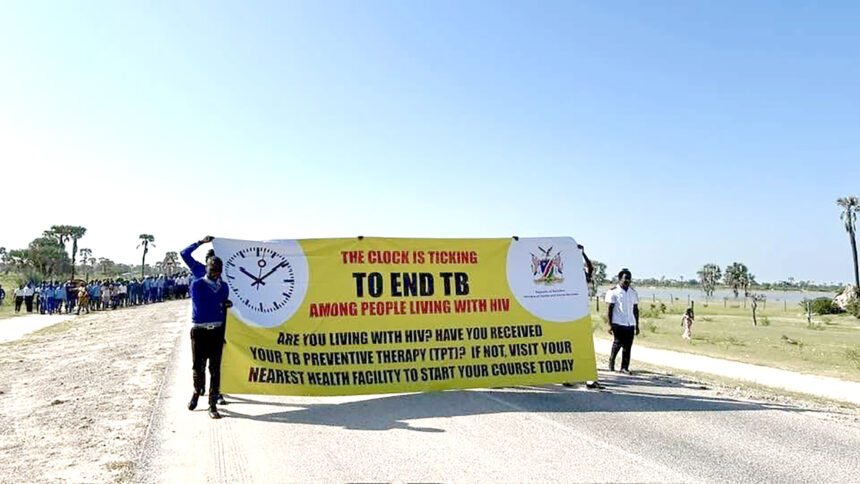TSANDI – Tuberculosis (TB) remains a major public health concern in Namibia, with 42 recorded deaths in 2024/25.
This highlights the urgent need for strengthened interventions.
In 2023 1.2 million deaths were recorded due to TB globally.
Health and Social Services minister Dr Esperance Luvindao revealed these figures in a speech delivered on her behalf during World TB Day commemorations in Tsandi, Omusati region.
She said TB continues to be the world’s deadliest infectious disease, with 10.8 million cases recorded globally in 2023.
“As one of the countries with the highest TB burden per capita, we must intensify efforts to defeat this disease,” Luvindao said.
Namibia has made progress in its fight against TB, achieving an 88% treatment success rate, just 2% below the World Health Organisation’s (WHO) 90% target. However, drug-resistant TB treatment success remains lower at 74%.
In 2024 alone, 8 360 cases of drug-susceptible TB and 292 cases of drug-resistant TB were diagnosed. Despite these figures, WHO estimates indicate that up to 33% of TB cases in Namibia remain undiagnosed, meaning the country could be missing as much as 67% of its TB burden.
Luvindao also raised concerns about TB/HIV co-infections, stressing the need for integrated health services to address the heightened risk among people living with HIV.
She said Namibia must continue mobilising resources and partnerships to curb the spread of the disease and prevent further loss of life.
WHO Representative in Namibia, Dr Richard Banda, reaffirmed WHO’s commitment to supporting the country through strategic guidance and strengthened surveillance.
He called for greater efforts to implement WHO-recommended TB strategies and increase domestic financing to ensure access to life-saving treatment.
Namibia remains among the top 11 countries globally with the highest TB incidence rates.
Global targets are aiming for a 90% reduction in TB deaths and an 80% drop in incidence by 2030.



